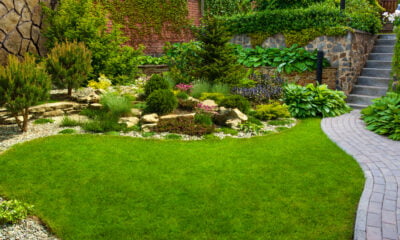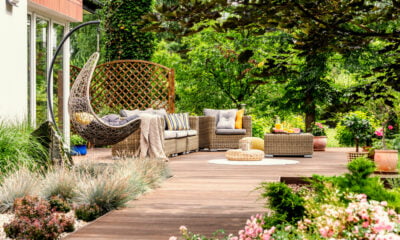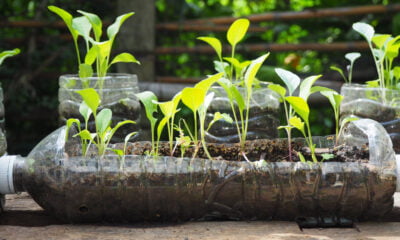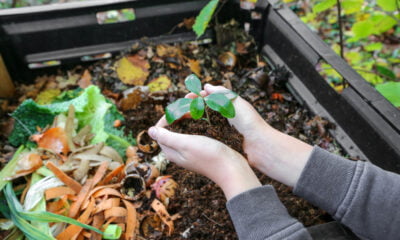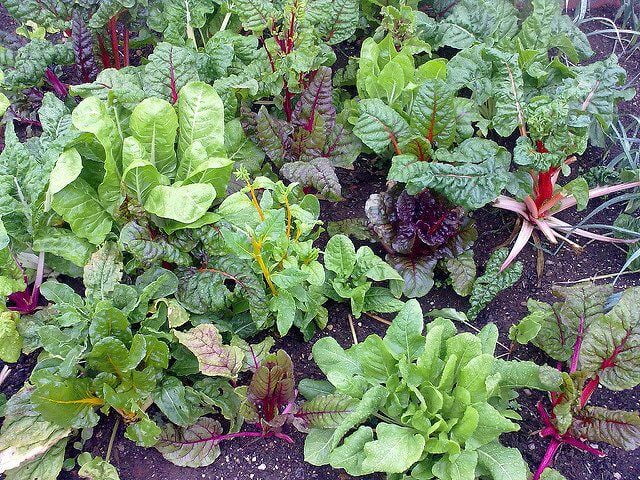
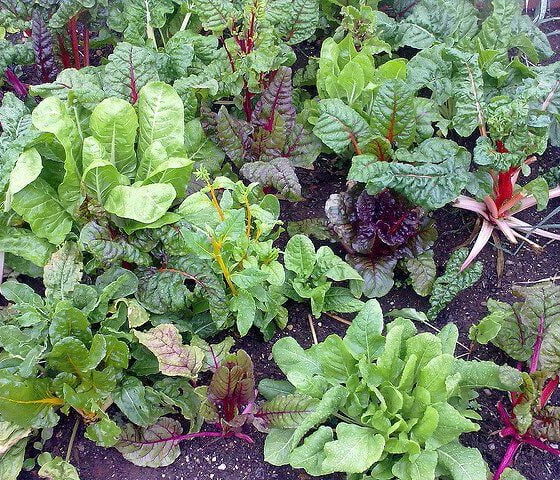
Features
How Green is Your Landscaping?
When a person decides to live a green lifestyle usually they turn their attention to the interior of their home. The truth of the matter is, there are just as many ways to green up your lifestyle outdoors. Often the landscaping choices we make can add the biggest impression to our eco footprint.
In some areas of the country, people spend just as much time in their outdoor living spaces as they do indoors most of the year. Comfort and design are just as high a priority as sustainability. With a little forethought and the suggestions below you can have an exterior that’s comfortable, chic and sustainable.
Lush Lawn Without the Water and Pesticides
Nothing gives a homeowner more pride than a lush, green yard. Many environmentalists have settled for xeriscaping, only because they didn’t realize grass can be eco-friendly. Planting grass can be very beneficial to the environment – as long as you do it in a responsible way.
Planting grass seed that’s native to the area is one of the best ways to get a green lawn with the minimum amount of resources. Some “eco” seed varieties have been specially developed to be more drought resistant so they require less watering. Native grass seeds also tend to be better equipped for the local environment so they’re more likely to survive without fertilizers and pesticides.
Choosing grass seed over sod is the economical option but, for many people, the real benefit of cultivating a lawn by seed is knowing you’re making a responsible choice. The experts at Nature’s Finest Seed have put together a handy regional seed map with a dozen different climate zones across the country. Just choose your region to find out which grass seed blend will work best for your local soil, sun coverage and temperature.
Use Green Gardening Tools
If you’re spending time, money and energy to make your landscaping more ecofriendly, then why use tools full of toxins? Today you can find a variety of green gardening tools that minimize the eco-footprint of your yard while you work in it.
Two tools to focus on are the weed eater and lawn mower. These two gardening tools can be gas-powered or electric. Of course, the latter of the two is more ecofriendly, particularly if it utilizes solar power. But an old-school push lawnmower is just as green and it’s just about the least expensive option.
Creating a Compost Heap
The Environmental Protection Agency (EPA) estimates that up to 30% of the materials in U.S. landfills could have been composted instead. That’s a huge portion of the second-largest source of man-made methane on the planet. Deciding to compost is one of the most impactful things you can do to green up our world.
Few people realize how easy it is to incorporate composting alongside recycling. All you really need is an airtight receptacle for compostable materials, like:
- Food scraps
- Eggshells
- Coffee grinds
- Coffee filters
- Newspapers
You can even throw your lawn clippings and other yard waste into the compost pile as well. The compost can be used in place of chemical-laden fertilizers for healthier soil without adding toxins to the environment and unnecessary garbage to landfills. Even people without a garden can create compost and donate it to local community gardens or a city composting service.
Use Natural Pesticides
There is a wide selection of pesticides that have been deemed safe to use, but many still contain unnatural chemicals. Even if the FDA and EPA have approved their use, there are greener options for keeping garden pests under control.
For starters, green gardeners should learn to identify beneficial bugs. There are a number of insects that feed off of other harmful bugs and can provide natural pest control. Some insects to invite into your yard include:
- Ladybugs
- Praying mantises
- Garden spiders
- Green lacewings
- Ground beetles
- Damsel bugs
- Soldier beetles
If you aren’t too squeamish about bugs hand-picking them off of plants is preferred over using a pesticide spray whenever possible. Using a chemical pesticide not only puts toxins into the environment, it also kills the beneficial bugs along with the bad ones.
For times when you need to spray away an infestation, be very careful with the formula you choose. There are a number of natural pesticides you can mix up at home using everyday products. For example, you can mix up a solution of mint, citronella, cedar oil or garlic oil with water to deter certain pests with aromas alone.


 Environment12 months ago
Environment12 months agoAre Polymer Banknotes: an Eco-Friendly Trend or a Groundswell?

 Features11 months ago
Features11 months agoEco-Friendly Cryptocurrencies: Sustainable Investment Choices

 Features12 months ago
Features12 months agoEco-Friendly Crypto Traders Must Find the Right Exchange

 Energy11 months ago
Energy11 months agoThe Growing Role of Solar Panels in Ireland’s Energy Future
